Synth-pop juggernaut Georgia on her gear, production and being born in the studio
With Radio 1 support and a very memorable Glastonbury performance – not to mention some incredibly infectious songwriting – Georgia has suddenly joined the A-list of in-demand producers. With her synth-laden single About Work The Dancefloor quickly becoming the summer tune of 2019, we catch up with Georgia in her London-based studio to talk gear, production and how she was almost destined for the dancefloor.
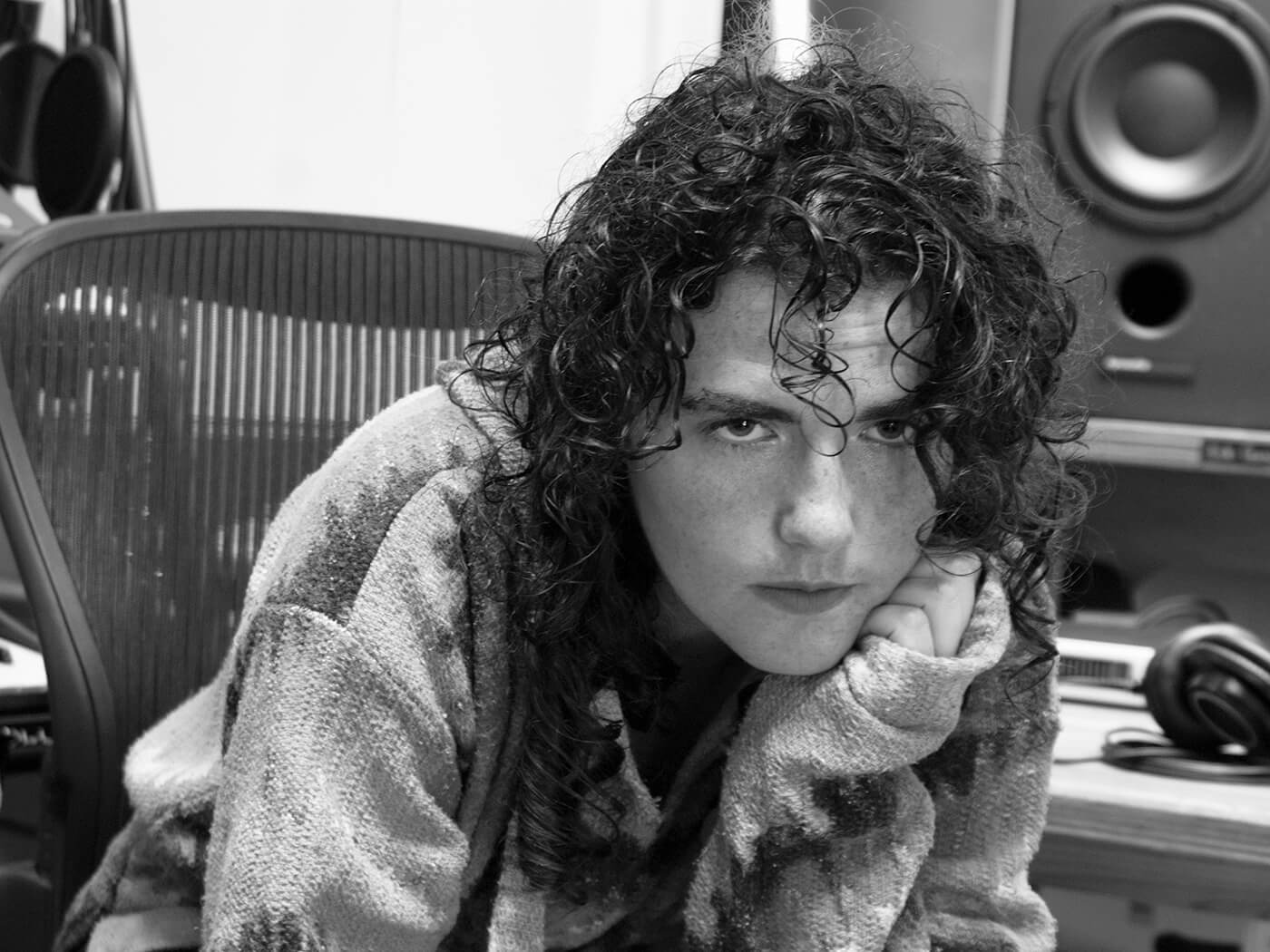
Photography by John Thackray
Hype surrounding Georgia first started building back in 2015 with the release of her debut self-titled album, when The Guardian listed her as one of the artists to watch of that year. However, the artist and producer then seemingly disappeared over the next three years, refining her sound to perfection and is now trickle-releasing the results, with some spectacular success.
With Annie Mac’s support, the first track from this new material, Started Out has already made huge waves, but it’s the electro-disco single About Work The Dancefloor, currently almost on constant Radio 1 rotation, that’s thrown the young producer truly into the spotlight. She’s now on a relentless schedule of live shows – including an exhilarating, BBC-filmed set at Glastonbury – and studio collaborations with the likes of influential DJ The Black Madonna. With her as-yet-untitled second album complete and ready for release in early 2020, Georgia now has time to reflect on the last few years, her mostly hardware-based studio setup and, as she reveals, being born at the eye of the dance-music storm.
“As a kid, I was always intrigued by instruments,” Georgia recalls of her early introduction to music. “My parents were very supportive and encouraging and dad got me a 12-track cassette recorder. I absolutely fell in love with it as it meant I could turn my bedroom into a kind of recording studio. He left me to it, but explained the principles of recording, so ‘This channel can be for your vocals, this channel for your synth, that for a drum machine and if you set up a mic onto an acoustic guitar, you can create with that.’ I just loved the endless possibilities of recording.
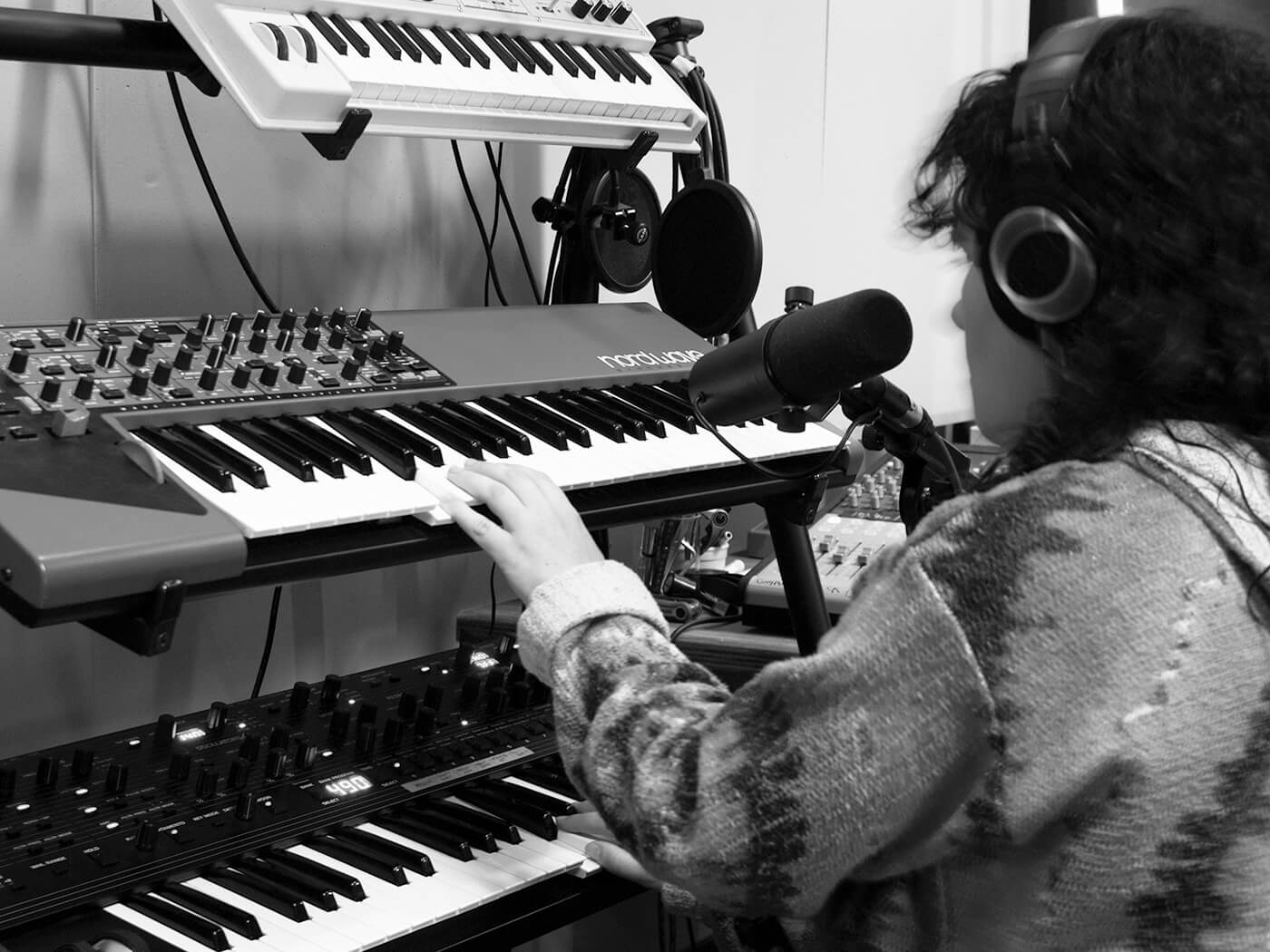
“That cassette recorder turned into Logic and an audio interface,” she continues, “and by 16, I had started delving into what you could do with computers, but I was still using all outboard gear, hardware synthesizers and drum machines. I only used specific plug-ins – a few reverbs, a bit of compression, a few delays. To this day, I don’t really go mad with plug-ins and have just three or four from Waves and Soundtoys.”
Growing up in the 90s Georgia’s influences covered a wide range, from the out-and-out pop of the Spice Girls to electronic acts such as Kraftwerk and Depeche Mode, taking in a huge range of folk and hip-hop artists along the way.
“I would listen religiously to Missy Elliott,” she reveals. “I don’t know what it was about them, but hip-hop and R&B became my go-to music. I was also listening to a lot of folk music and then started getting into several record labels and realised that a label like Elektra had both Tim Buckley and Missy Elliott on it, so that’s where my love for tracing the roots of genres and crate-digging came from. I just love discovering sound.
“I was also fascinated by the 80s and how drum machines infiltrated the disco world, but mainly I loved experimental people who crossed over into the mainstream, so Kate Bush was also an idol. She went down the road of commercial pop, but also wanted to push boundaries and introduce people to new sounds and ways of thinking. That has totally fed into my music. I’m not interested in it all sounding generic; I want people to hear a song of mine and go, ‘Wow, what is that sound?’ or, ‘Where did that come from?’”
Drumming at seven
Georgia started out professionally in music as a drummer after discovering she could play from the age of just seven. “Don’t ask me how, I could just do it!” she laughs, and after a stint playing in her friend Kwes’ band, she got offered a deal on Domino Records for her 2015 debut album, Georgia.
“It did get critical acclaim, but it didn’t really do anything in terms of record sales,” Georgia admits, “but I am incredibly proud of it, as it gave me the basis of a sound that I could home in on and work on. I knew what needed to be improved for the next album and I was allowed to be completely in control of it and go back into the studio to write new songs. About Work The Dancefloor turned into a total example of that. Last year, the track Started Out came out and it was totally unexpected that it did really well. People like Annie Mac from Radio 1 were championing it, so I really thank her for playing it. Since then, it’s been crazy and I’m getting a taster of what it can be like if your songs break through. I’m really enjoying it and I’ve decided to savour every moment. You don’t know how long it’s going to last. Being too critical of yourself and not loving what you are doing can be so easy in music, so I just want to enjoy every single moment.”
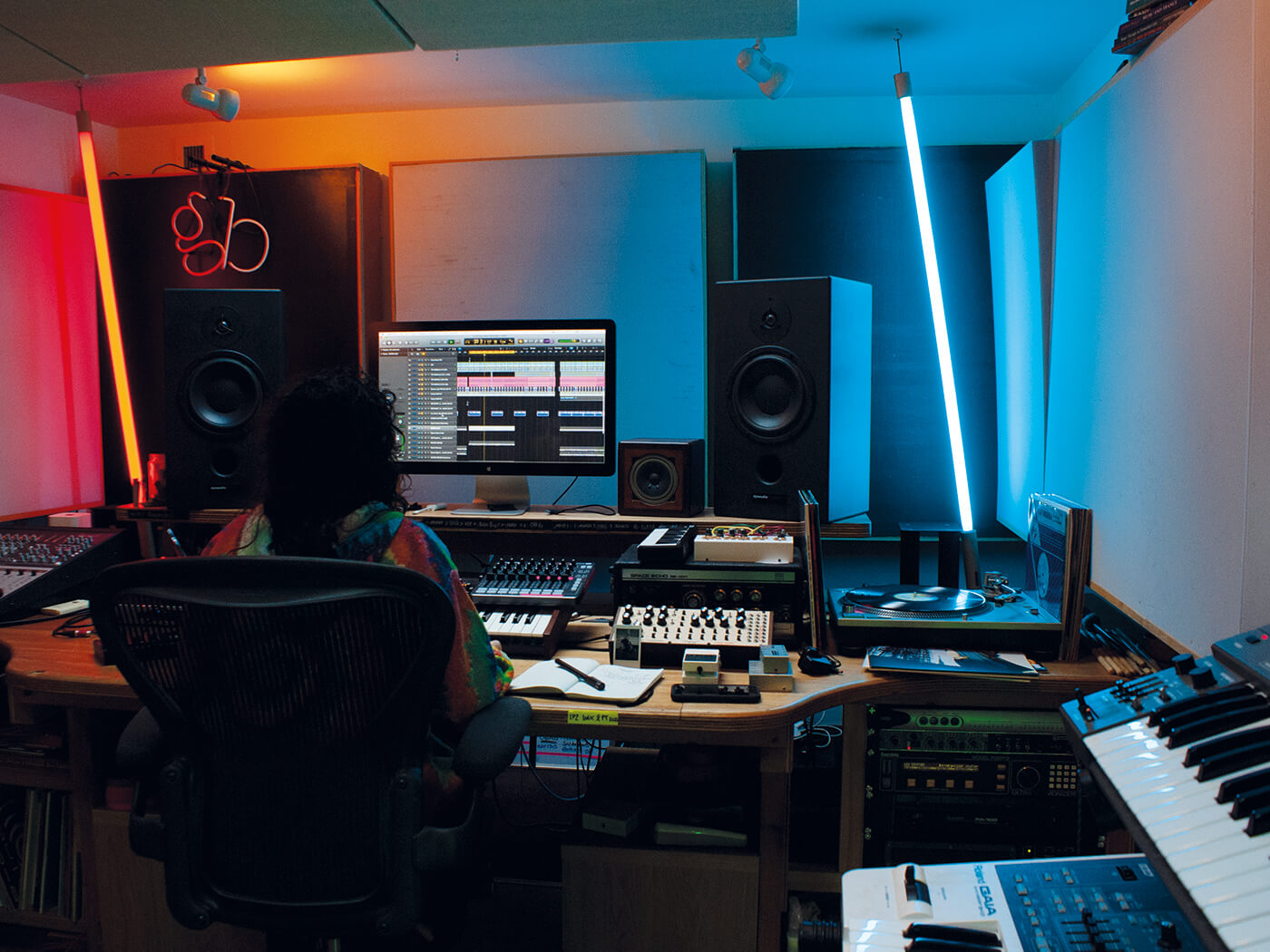
Georgia is pleased that the direction of her new music and the new album crosses over from pop to experimental, with an 80s influence. In fact, she admits that About Work The Dancefloor very much set the template.
“It was one of those tracks that was quite instant,” she says of its inception. “I came up with the main synth line quite quickly. I have two synths that I use for my sound: the Nord Wave and DSI OB-6. The Wave is discontinued, but I absolutely love that synth. I came up with the main synth melody and as soon as I had that, I came up with vocal ideas. It usually stems from me creating interesting sounds on the synth. I’m always trying to add a bit of character or aesthetic, not just use a preset sound.
“So part of About Work The Dancefloor came through that and was done on the OB-6. It’s an arpeggiation, really, but I’m not holding down a chord, but actually playing a line from the arpeggiation, so it’s not a typical pattern, it has a swing to it. While I came up with that line, other melodies were instantly going on in my head. I have this setup where a microphone and the synths are all going straight into the computer, so everything is set up live.
“I work very fast, so as soon as I lay down the synth, I’m then using a Dave Smith Mopho for bass and I also have an SH-101 set up, too, so I was on that as well. The 101 was doing the pulse-like kind of bassline.
“I ended up with a kind of eight-bar loop with drums,” she continues, “and then I knew I wanted to create a kind of Depeche Mode-esque set of simple synth lines and drums. I was also listening to Cybotron, Juan Atkins’ project from back in the 80s and that’s where I got the vocoder idea for the chorus – it’s very robotic. And the way I’m describing it is as fast as how I would be doing it. It was like ‘onto this bit, onto that bit’, until I had 16 bars of the idea. And then I was like, ‘This is a really, really good song,’ and I could just tell that this was the direction I wanted to be going with the new record and songs. It was the perfect marriage of electro meeting pop. I ended up working on it for a week and I knew I wanted to turn it into a pop song, so it had to be three minutes 12 seconds and then it all took shape and happened very instantaneously.”
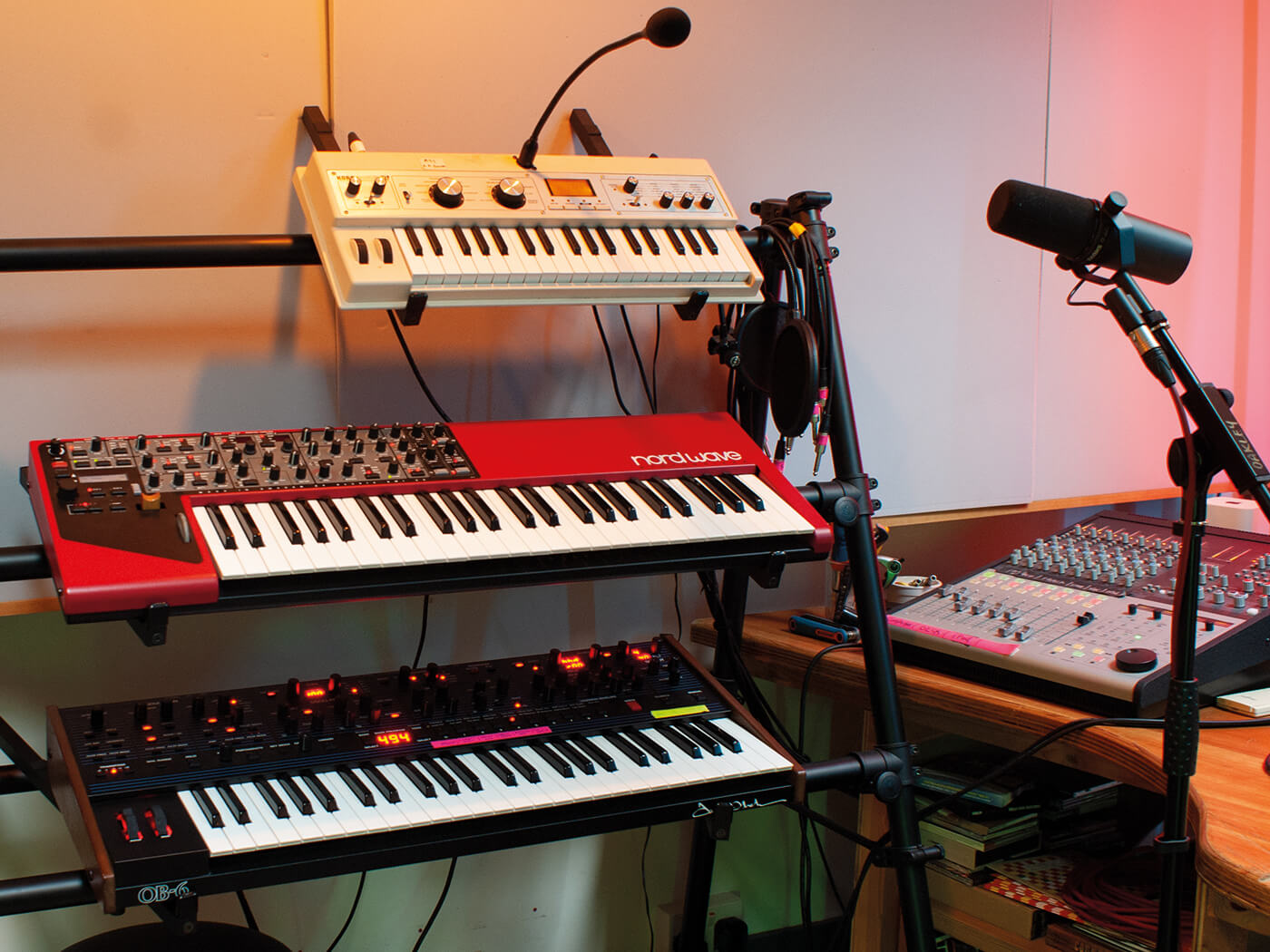
So can we expect the rest of the album to feature that …Dancefloor vibe? “Yeah totally,” Georgia replies, “although there are songs on there that aren’t so dancey, maybe a bit more hip-hop. And I’ve also got slower songs, more Kate Bush or Price-esque. I also love the band The Blue Nile and I wanted to do a song like from [their album] Hats; it’s quite a heavy song about London. But the whole thing is influenced by this kind of digital-meets-analogue aesthetic. I mixed the record with my friend Mark Ralph, who has become my collaborator.
“We did it at his studio, which I love. It’s called Club Ralph and he has an SSL desk from 1984 in there. Honestly, the amount of records that have been mixed on that desk is just endless. Mixing the whole album on that desk was the cherry on the cake – to mix on a piece of equipment from the era that so heavily influenced the music. We spent about a year just mixing it and it was that level of intense. Mark and I would dissect everything.
“From the experience of the first record I need a second pair of trusted ears, so it was thoroughly enjoyable and Mark is so talented. The way he works that SSL desk is something I aspire to do and I would love to have an SSL, but you have to take a mortgage out to get one.”
Work the studio
Talking about studio gear, as we inevitably get around to it, we’ve already discovered that Georgia is not a huge fan of plug-in effects, but she goes one step further with plug-in instruments, admitting, “I’ve never used a soft synth in my life!”
As you can see, there’s a huge range of hardware in the studio, with some not-so-obvious synth choices, alongside some classics. “I love the ARP Odyssey and a 70s Moog is all over the record. Then of course, the Nord Wave, DSI OB-6 and Roland SH-101. The Nord Wave is my go-to synth and I feel I know everything about it. We also used a Korg Volca beats all over the album for some drum parts.”
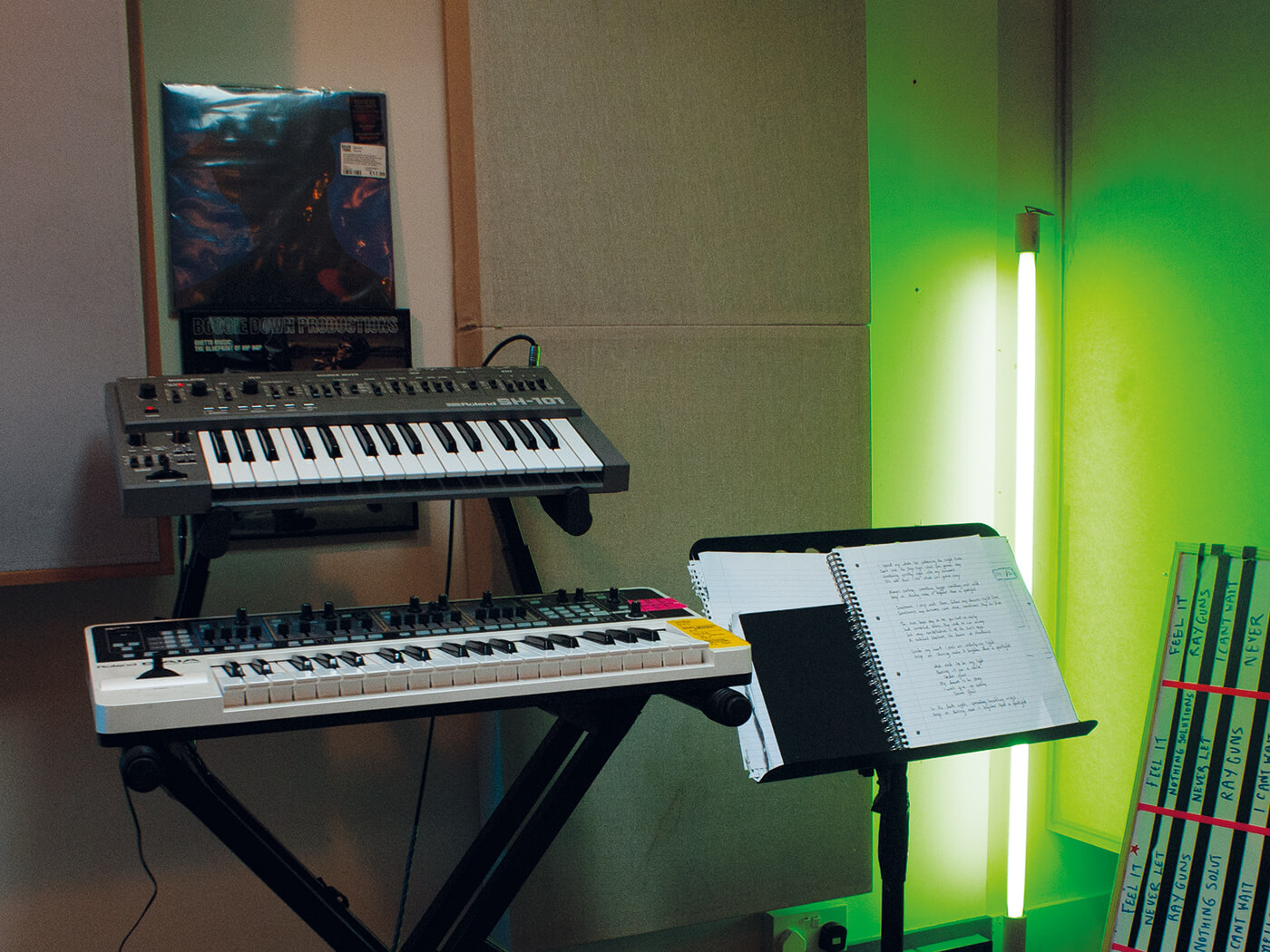
There’s a lot of synths there and we’ve also spotted a Moog DFAM drum module, so has Georgia been tempted to enter that vast world of modular synthesis? “Yeah, for sure,” she admits, but… “I’ve wanted to, but it’s just a very expensive world, so it’s just not a priority. I’d rather spend the money on getting a proper 909. That, for me, is a priority, although I do have a whole page on my iPhone which is all of the stuff I want to get, including modular, but when you add up the cost, you could buy a car with it!”
What else is on the list?
“My god, you wouldn’t believe it, I could be here all day,” she laughs. “If you asked me what I’d want synth-wise in the future, it would be a Yamaha CS-80 – I would absolutely love one of those. I want to get some more outboard processors, so I’m looking for an AMS delay and reverb unit, an old Neve EQ for my microphone. I also want a Neumann U 87 and would really love the 909. We rented one in [for the album], but I’d really love to get one anyway. And I would always add to the synth collection – I could never stop – and also that SSL desk.”
Georgia still uses Logic at the core of the setup and has also been getting to know Pro Tools as the album has been coming together, which has been helping her on the production side of her career – which has also taken off as word of her music gathers pace. And as she works with more artists, she is keen to pass on her hardware knowledge to them.
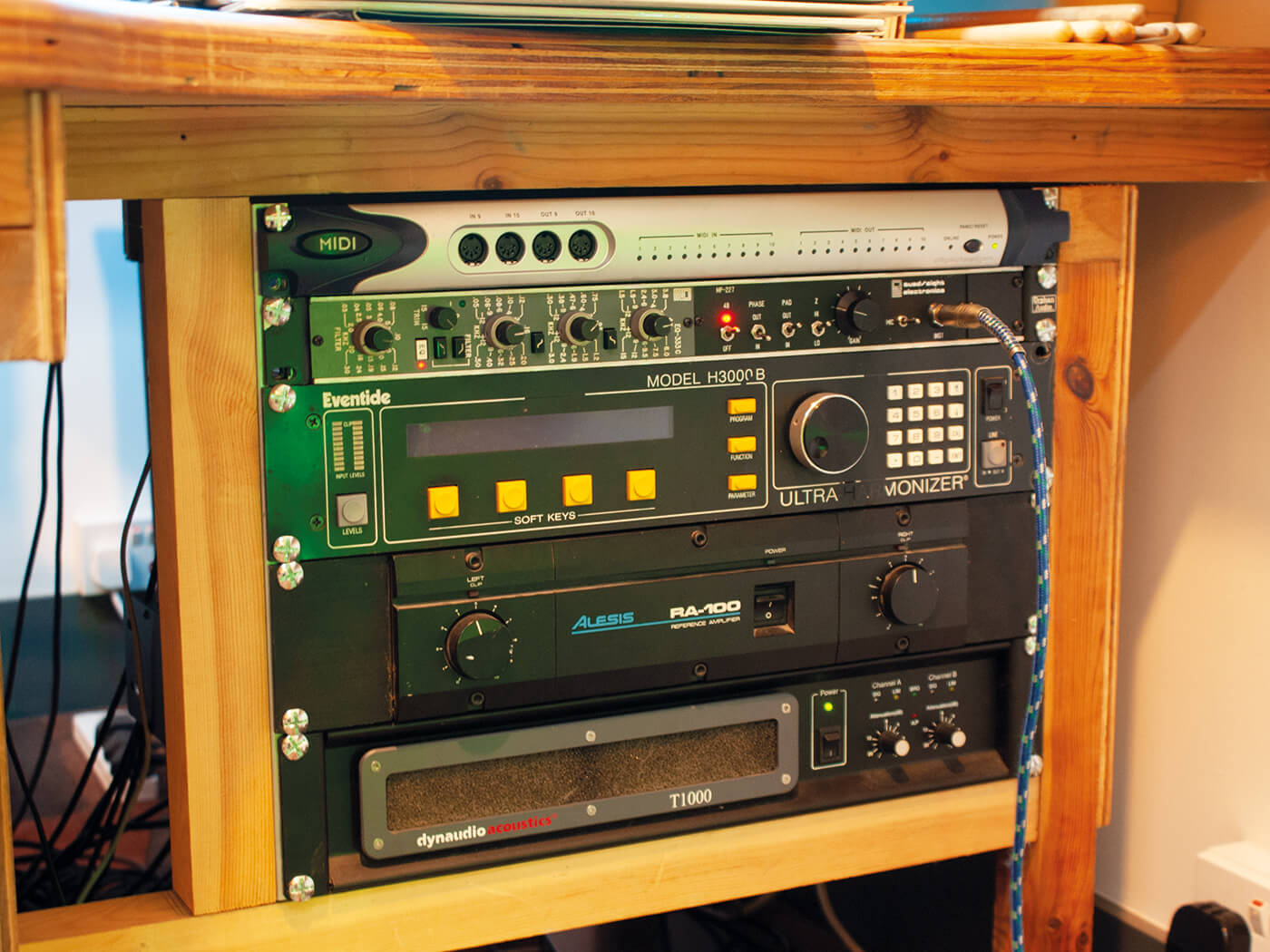
“Some of the younger ones don’t use outboard hardware,” she says, “so they don’t realise that it’s a slower process and that you have to be patient. I think patience when creating music is an important factor. You should take a deep breath and know it’s going to take this long because you have to put it through this processor or you have to recall the desk or whatever. It’s slightly time-consuming, but I really enjoy that part of it because I’ve been around old technology since I was a little girl. With newer generations, I can see how that can become frustrating for them. Kids can try and emulate what we do with outboard gear in five seconds in the box, but there’s nothing like turning a few knobs on an AMS delay and creating something individual and spectacular and your whole body physically getting into it. It’s something that every musician and producer should experience. It’s so cool, you’re like a mad professor.”
A Leftfield approach
Georgia has clearly taken a single-minded approach to her studio, her music and her career, but it all could have been very different. Georgia’s father is Neil Barnes from the iconic dance act Leftfield and a less-driven person – this author included (!) – could have taken a few handouts and an easier path to music-making. But Georgia was always keen to remain independent of her past. And that past is quite something. She was actually born in Leftfield’s studio – like we say, destined for the dancefloor…
“My dad has been so supportive, but also my mum who is equally supportive,” Georgia says. “Obviously, growing up surrounded by instruments, that was because of my dad. Leftfield had already reached a level of success by the time I was born. We lived in a co-opped flat in central London. My mum had a flat, but there was also this other one that was my bedroom and also Leftfield’s studio, so I was literally born in a studio! When I think about it, it’s no surprise that I have followed in my dad’s footsteps, as I was brought up around instruments and music.
“He has been incredibly encouraging and supportive throughout, but he’s never got involved in the music, because he was from an ethos of doing it yourself. That’s how the dance world was born. My dad was an ex-punk, too and in post-punk and indie bands, so he didn’t want to do it for me and was very adamant about that. He bought me some gear, like that cassette recorder, which was amazing and I cannot complain at all, as he has been so encouraging. I never borrowed any of their gear, though and have bought everything myself since getting the record deal. It’s a hard one, isn’t it, because whenever people find out about that background, they automatically assume you’ve been handed everything on a plate – which isn’t the case at all.
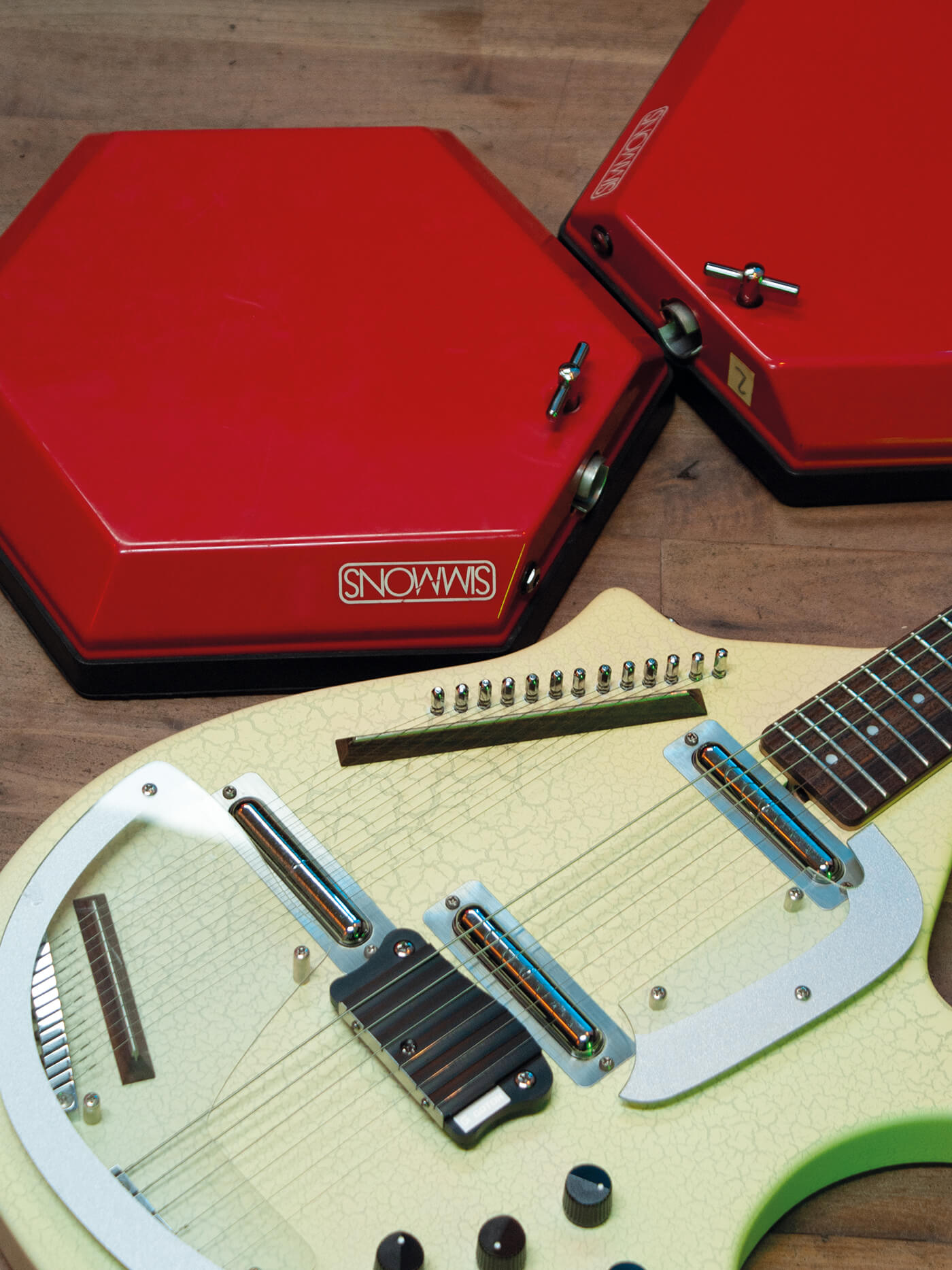
“I’m certainly not ashamed to say he’s my dad as to me, Leftfield are one of the greatest musical acts this country has ever produced and for me, dance music is one of the most important forms of music. With this new record, I was just completely obsessed with Chicago house and Detroit techno and how they came over and were so embraced by this country. Juan Atkins, Frankie Knuckles and Jeff Mills are like gods in this country and the UK rave scene did so much for people and really liberated them. They should be like gods to pop music, as it’s so heavily influenced by dance aesthetics and they were the people who invented it. And my dad being part of that journey, I’m incredibly proud of that.”
Georgia’s new album will be out in 2020 and will be preceded by more singles and the output from the many recent collaborations and productions that she has been involved with. “I’m so excited with what’s going on at the moment and can’t wait for people to hear what I’ve been doing. One of the big ones is the Black Madonna collaboration. She is an amazing DJ in the dance world and I’m so excited about everything we’ve done with her. As a child who was literally born out of the dance world, it’s nice to have that world in my life. It’s part of my makeup.”
Glastonbury – Surrounded by technology
Georgia’s recent Glastonbury performance really was something else. She was surrounded by an electronic drum kit within a kind of technology pod and won over the crowd with a set of both old and new tracks.
“Oh it was fantastic, brilliant, such an amazing show,” she says. “It was a big stage for me, and then I found out the BBC were going to be filming it so that was a really scary thing, as I’ve never experienced anything like that. I really suffer from nerves and go through hell before a show, but this one was a real moment, it was a really overwhelming experience. Everyone felt like they were there with me in that performance, and I feel that at Glastonbury people want that, they want to feel like they are part of the performance.”
She was also surrounded – literally, in the case of the electronic drum kit – with technology!
“Yeah, I bought that Simmons electronic drum kit for the shows,” Georgia reveals. “It was made in 1982. Fortunately, and touch wood, it has been okay but you are dealing with vintage equipment like that. I have a team around me that help me do the live show and we’re running it all through Ableton Live using MIDI. MIDI might be one of the greatest inventions in music, but it also throws up its own challenges as it’s quite an old technology now and when using it with new technology, it can go wrong.
“I’m on stage on my own, but I have someone who I can trust just offstage to the right, Tristan, and he’s a wizard on Ableton. If something goes down, though, I just have to adapt what I’m playing. All the drums are live, and the singing. Obviously, with electronic music, there is an element you can’t create, so we have to have a track playing, but we’re not relying on it for the main force. That is me playing drums and singing and there is a lot going on, but I feel at my most comfortable when there is a lot going on. I feel that we have the live show at a base level where we can really expand on it. The next task is to figure out where I can leave that station and come out and be nearer the crowd. There’s always room for improvement, but that is what music is all about… And anything is possible when you put your mind to it.”
You can see Georgia’s full Glastonbury gig on BBC’s iPlayer. See her website for more info and tour dates.